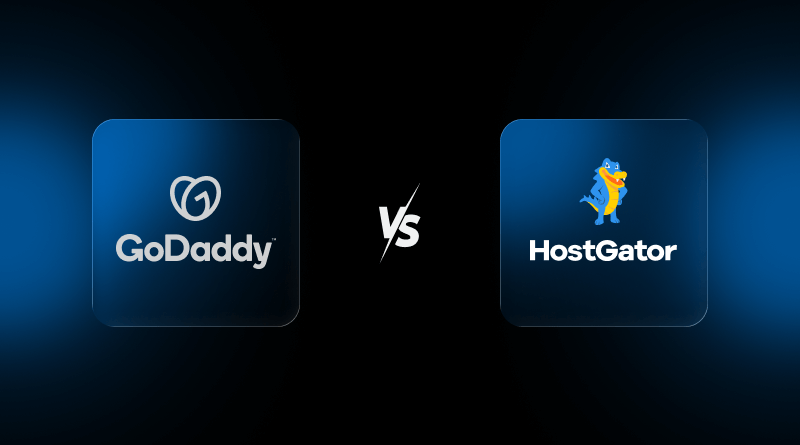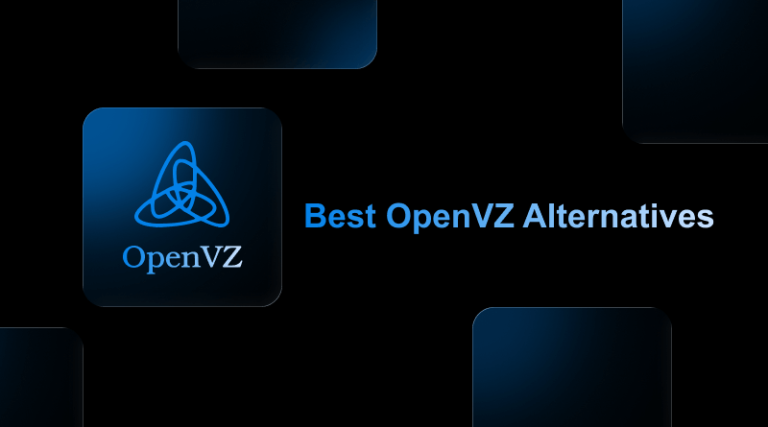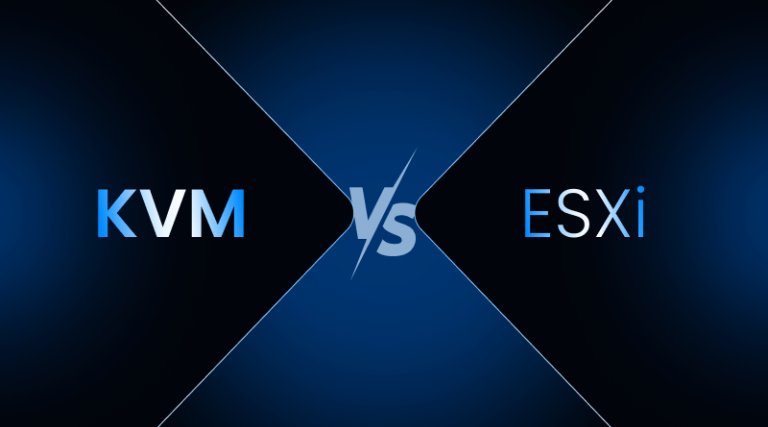You might have come across the question about which web hosting company is reliable between GoDaddy and HostGator. For some, GoDaddy has become the favorite domain registrar with web hosting included in it. ..You can make the purchasing decision after buying a web hosting plan from both service providers.
But why invest your capital when you could get the insights after reading this GoDaddy vs. HostGator blog? Find out the winner, and we will give the final verdict at the conclusion. So, let’s begin.
Table Of Content
GoDaddy vs. HostGator: A Complete Overview
GoDaddy began its presence in 1997. Bob Parsons has found the world’s leading domain registrar. Today, it is a publicly listed company on the NYSE offering web hosting services and domain registrations worldwide. HostGator has also marched the growth journey along with GoDaddy after its origin in 2002. It was founded by Brent Oxley, a Florida Atlantic University graduate.
Both web hosting providers offer similar sorts of services. And cumulatively they host more than 10 million websites. To get the brief comparison based on their core features, you need to scroll down below.
GoDaddy vs. HostGator: Key Features
1. Plan and Pricing
Locking yourself into a longer contract in a limited-resource plan limits your scalability options. Hence, GoDaddy and Hostinger offer scalable plans with a plethora of features.
GoDaddy Pricing
GoDaddy has four-tier pricing plans: Starter, Economy, Deluxe, and Ultimate. These are basic shared hosting plans. The rest of the plans’ costs and names vary according to their respective configurations. With GoDaddy, beginners can begin their online journey at the cost of:
- Starter: £4.58/mo
- Economy: £4.58/mo
- Deluxe: £6.11/mo
- Ultimate: £9.93/mo
HostGator Pricing
HostGator’s basic web hosting plans also have four categories. They are labelled as Hatchling, Baby, Business, and Pro. With different renewal charges for each plan, it has a variable discount range too. HostGator takes the lead in offering freebies and marketing tools like the Yoast SEO plugin and Pro Email with all plans.
- Hatchling: £3.02/mo
- Baby: £3.78/mo
- Business: £5.31/mo
- Pro: £10.66/mo
2. Security
The internet is a vast ocean with sharks (hackers) and small fish (internet users). So, deploying a security mechanism is essential to shield your sensitive data. Decode the security features that both the web hosts provide.
Backup Policy
Website backup is crucial when you only have a few pages on the website. HostGator offers weekly backups. It means only 7 days of backup data is available if you are a HostGator customer. The new backup overwrites the previous ones. To increase the website backup duration, you need third-party services like CodeGuard.
GoDaddy offers the free daily backups on all managed WordPress hosting plans. For other backup services, there is the GoDaddy website backup tool that costs under three dollars per month.
SSL certificates
HostGator and GoDaddy offer free SSL certificates on all plans. GoDaddy leverages AutoSSL, which is an alternative to a paid SSL certificate. With AutoSSL, your cPanel hosting account automatically assigns a DV SSL Certificate by Sectigo. Keep your GoDaddy Web Hosting current, and your SSL certificate will automatically renew on your behalf, so you don’t have to worry about it expiring.
Firewall Protection
HostGator servers protect your website from cyberattacks, SQL injection, and cross-site scripting. The web host offers extensive firewall protection and massive security sets that restrict the access of third-party users. GoDaddy has a no-compromise policy on security standards. It also protects against attacks such as DDoS attacks, SQL injection techniques, and cross-site scripting.
GoDaddy vs. HostGator: Ease of Use

1. User Interface
The best place to start is the user interface. Plesk and cPanel are the only two acceptable answers to this question. They’re both great because they’re easy to figure out and use, and most hosts already use them, making it easier to switch from other hosts. cPanel is installed on both HostGator and GoDaddy’s shared and WordPress hosting plans.
2. Free Domains
We believe that all plans should include free domain registration, and GoDaddy and HostGator agree, at least on Shared and Managed WordPress hosting plans. If you’re a newbie, you’ll appreciate the fact that GoDaddy and HostGator offer free domains on their plans. It may be easy to take free domains for granted because many hosts offer them now. People should remember, however, that some hosts, like SiteGround, do not offer free domains.
3. Staging Environments
Your website’s staging environment lets you test changes before they go live, which is great. While you can create a staging environment using a plug-in or by creating a subdomain, it’s usually better if your host includes one with your plan. Staging environments are only available on managed WordPress hosting plans (except the basic plan) at GoDaddy. Unfortunately, HostGator does not offer staging areas. If you’re interested in having one, you’ll need to create it yourself.
Apps Integration, Installation, and Marketplace
Besides Content Management Systems, GoDaddy and HostGator support a wide range of other applications such as Drupal, Joomla, and Magento. Moreover, both hosts provide users with access to these apps, plug-ins, and professional services through the MOJO marketplace. Marketplaces are places where you can hire and buy all kinds of products and services. Users who want to install WordPress on their shared hosting plans have one-click installation support from both hosts.
Figure out your priorities, and make the perfect decision between GoDaddy and HostGator. GoDaddy makes the domain registration, hosting, and website setup easier with the beginner-friendly interface. HostGator is known for its flexible hosting plans, more scalability, and developer-friendly control.
Growing startups, or small businesses, can rely on GoDaddy to register a domain and establish an online presence. HostGator suits the bloggers, developers, and IT firms that look for more customization.
FAQs
1. Do HostGator or GoDaddy offer better overall value in their entry-level hosting plans?
In comparison to GoDaddy, HostGator generally provides more overall value due to its lower prices, additional features, and unmetered bandwidth at the entry-level packages.
2. Do GoDaddy or HostGator plans include a free domain name and free SSL certificate?
Both HostGator and GoDaddy do provide a free domain name for the first year, but HostGator does provide a free Apache certificate along with all of its plans, whereas GoDaddy does not allow free access to all levels of SSL.
3. Which hosting provider has more reliable server infrastructure and fewer reported outages?
HostGator tends to have more consistent uptime and performance, whereas GoDaddy is more reliable but still reports some downtime.
4. Do HostGator or GoDaddy use faster SSD or NVMe storage on their shared plans?
HostGator applies the traditional SSD storage in shared hosting, but NVMe storage can now be found in select plans in GoDaddy, so the latter can slightly better handle data.














